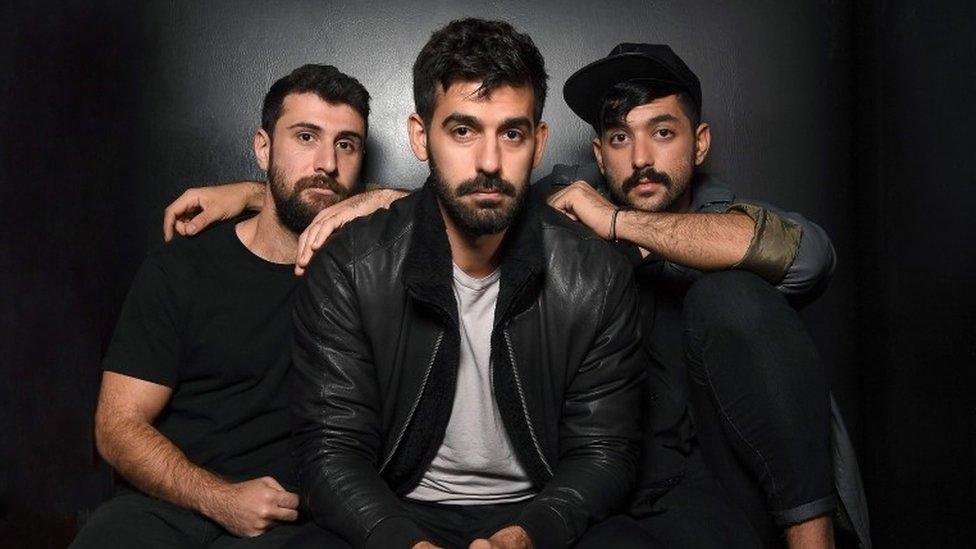Elissa, Lebanese pop star, retires from 'mafia-like' music industry
- Published

Elissa has sold millions of albums worldwide and has been outspoken on social taboos
Elissa, one of the biggest pop stars in the Arab world, has announced her retirement, blaming what she called the "mafia-like" music industry.
The Lebanese singer surprised fans on Monday by saying that her next album would be her last.
She did not explain her mafia comparison, but complained last year about her music being blocked because of a deal by her record label, Rotana.
During her career, Elissa's songs have challenged social taboos and politics.
In a tweet, she said she had decided to make the announcement "with a heavy heart but with a lot of conviction".
Allow X content?
This article contains content provided by X. We ask for your permission before anything is loaded, as they may be using cookies and other technologies. You may want to read X’s cookie policy, external and privacy policy, external before accepting. To view this content choose ‘accept and continue’.
Elissa, whose real name is Elissar Khoury, is one of the highest-selling female Arabic artists in the Middle East, with millions of records sold worldwide.
She began her musical career after studying politics at Lebanese University, and first gained attention after winning a silver medal at a Lebanese music competition, Studio El Fan.
Since then, the 46-year-old has released 11 studio albums and has won multiple awards for her work.
Outside of music, she has also launched her own line of perfume, worked as a judge on television talent shows, and appeared in adverts for brands including Pepsi.
Her music has touched on several taboos, including abuse against women. Elissa herself has also taken controversial political stances, including aligning herself with a former Christian militia in Lebanon.
She won new respect when she revealed she was being treated for breast cancer last year and produced a video featuring her sessions of radiotherapy. The video has been watched more than 22 million times on YouTube.
Last year, Elissa also hinted at problems with her record label Rotana after it signed a deal with music streaming service Deezer. The deal saw her songs removed from a key Arab music streaming platform on which she had received hundreds of millions of plays.
- Published10 January

- Published30 July 2019
